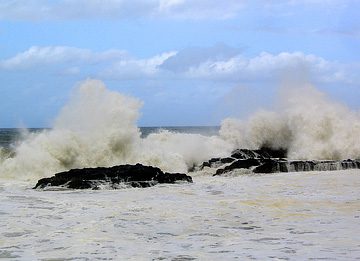Online education is a tsunami and it’s about to inundate us. It is changing education and how we think about – and maybe also what we’re willing to pay for it.

A couple of months ago, MIT and Harvard announced the formation of edX, a joint venture that will offer top quality online learning to millions of students throughout the world. Can’t get into MIT? Can’t afford Harvard? Not to worry. You can “take” MIT and Harvard classes online for free.
Not to be outdone, a coalition of major universities just unveiled a plan to offer hundreds of MOOCs beginning this fall. Oh, don’t know what a MOOC is? Soon this abbreviation will be common. But let me be the first to decode it for you: Massive Open Online Course. It’s open in that it is available to anyone across the globe. And, for now, the MOOCs offered by this consortium of universities will be free.
The universities that have banded together include:
California Institute of Technology;
Duke University;
Georgia Institute of Technology;
Johns Hopkins University;
Rice University;
University of California, San Francisco;
University of Illinois, Urbana-Champaign;
University of Washington;
University of Virginia;
University of Edinburgh in Scotland;
University of Toronto;
EPF Lausanne, a technical university in Switzerland.
This impressive collection of schools teamed up with Coursera, a year-old company founded by two Stanford professors.
What do the leaders of these universities think about their new endeavor?
“This is the tsunami,” said Richard A. DeMillo, the director of the Center for 21st Century Universities at Georgia Tech. “It’s all so new that everyone’s feeling their way around, but the potential upside for this experiment is so big that it’s hard for me to imagine any large research university that wouldn’t want to be involved.”
According to the times, MOOCs will have a profound impact on higher education, and therefore on the world:
Because of technological advances — among them, the greatly improved quality of online delivery platforms, the ability to personalize material and the capacity to analyze huge numbers of student experiences to see which approach works best — MOOCs are likely to be a game-changer, opening higher education to hundreds of millions of people.
Is this good news? Bad news? Mixed news? There’s no question in my mind that it is news, big news. But I’m unsure about the goodness/badness quotient. On the one hand, it seems wonderful to make high quality lectures available to people who might never before have been able to experience them. (This must be sending shock waves through The Teaching Company, which has made a substantial chunk of money selling “great courses” online. Why should we pay them when we can get a similar product for free?)
On the other hand, I worry about the impact of online education on smaller and local colleges. If I can learn American history from one of the top lecturer/scholars in the world, why take a course at the community college? And if I’m an administrator of the community college, trying desperately to save money, perhaps I’ll hire an inexpensive discussion leader/grader for the American history course and have students “take” the online course from Duke.
Yet, I have even more serious concerns about online education. I’ll share some of these soon.












